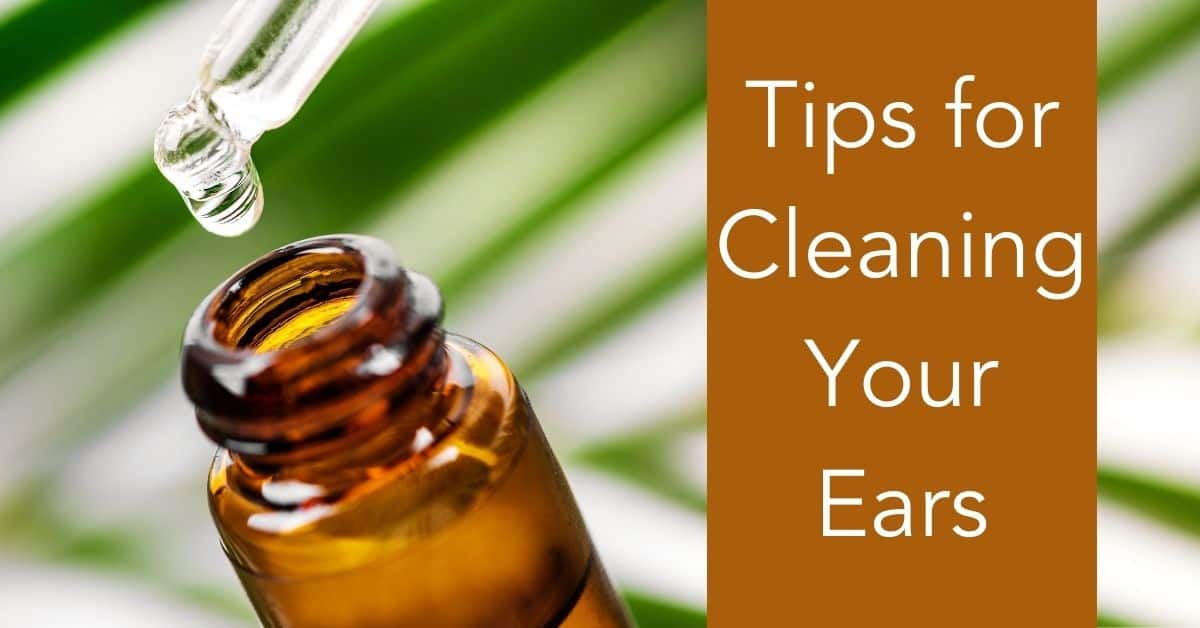
- Tips for Veterans Dealing With Hearing Loss - April 25, 2024
- How to Properly Clean Your Hearing Aids - April 15, 2024
- How to Handle Ear Infections With Hearing Aids - April 5, 2024
How to best clean your ears may seem obvious. Most people use a cotton swab but this is an ineffective way! Rather than removing earwax, using a cotton swab can push it further into your ear which can lead to health issues.
What is Earwax?
Earwax, a waxy oil like substance, is organically produced by the body. It is a combination of the secretions by sweat glands and the dead skin cells, dirt, dust, hair etc. that collects in the ears. Earwax, also referred to as cerumen, helps protect the ears, serving a few important functions:
- moisturizes: helps lubricate the skin in the ear, remaining moisturized prevents the ears from being dry and itchy.
- prevents infection: earwax contains antibacterial properties that helps prevent the buildup of bacteria and fungi that causes infection.
- protects eardrum: earwax serves as a protective barrier which traps dirt from reaching the eardrum.
Made between the outer and middle ear, earwax naturally exits the body. Jaw movement from talking, eating etc., helps move earwax out of the ear canal and to the ear opening where it typically dries and falls out. So, usually, we do not actually have to do anything special to remove earwax. But if you feel excessive earwax, it is important to effectively remove and clean your ears.
Impact of Excessive Earwax?
Earwax can buildup and remain in the ear which can cause several symptoms including the following:
- The ear feels full
- Pain, aching or ringing
- Not hearing as clearly
- An odor and/or discharge
- Dizziness and/or cough
If unremoved, excessive earwax can fill the ear canal and cause:
- Temporary hearing loss: if the ear canal is obstructed by earwax, the sound you absorb from the environment is not able to pass through and reach the inner ear so you are not able to hear effectively.
- Ear infections: the buildup of bacteria can lead to infection which causes a range of symptoms including pain, fever, coughing etc.
It is important to safely remove earwax if you are experiencing any of these symptoms. There are helpful ways to better clean your ears!
Tips for Cleaning Your Ears
Again, using a cotton swab is not at all recommended! Cotton swabs can be used to clean the outer ear which is the fleshy part of the ear that is most visible – but should not enter the ear. You can also use a washcloth which is both a safe and gentle way to clean the outer ear. To remove excessive earwax, useful ways include:
- Soften Earwax
This method involves softening the earwax in order to make removal easier. You can do this by using/making your own solution or purchasing over the counter ear drops that soften wax. Common ingredients used include: mineral oil, baby oil, glycerin, and hydrogen peroxide. The process essentially consists of placing ear drops into your ear and after a short amount of time, draining or rinsing the ears out.
- Ear Irrigation
There are different ways that this can happen but generally, irrigation involves using water or a simple saline solution to drain the ears. You tilt your head and place drops of the solution into the ear and after a minute or so, tilt your head the other way to drain the fluid and wax.
- Visiting a Doctor
Particularly if you are experiencing symptoms, visiting a doctor to remove earwax can be an incredibly effective option. A doctor is best equipped with instruments specifically designed for the ears (cerumen spoon, forceps, suction devices etc.), making removal much easier.
In addition to safely removing earwax, there are more ways you can keep your ears clean and healthy!
More Ear Care Tips
Taking care of your ears is critical for maintaining healthy hearing and preventing ear infections. A few additional tips that are useful:
- Avoid using your fingers or small items to enter the ear (bobby pins, cotton swabs, pins etc.)
- If you use hearing aids, earwax accumulation can be more likely for you. It is crucial to thoroughly clean your hearing aids, removing wax regularly.
- Take the time to dry out your ears after swimming to prevent infection. Using a cloth wipe can be helpful to do this.
